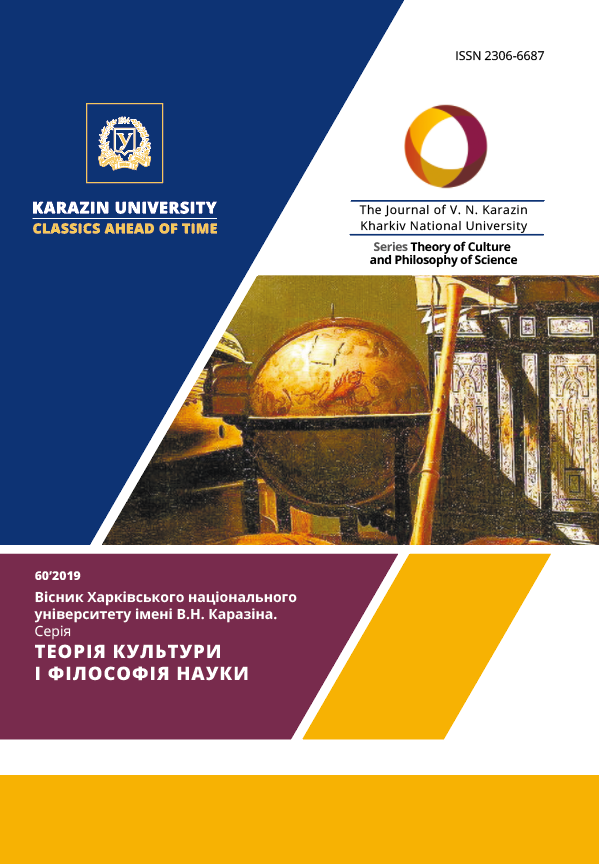«Я», що висковзує або криза ідентичності
Анотація
На сучасному етапі розвитку суспільства актуальною стає проблема ідентифікації та самоідентифікації людини. Індивідуальна свідомість розколота впливом масової культури, застосуванням технологій зміни свідомості, наприклад, в ситуаціях, формування громадської думки, абсолютизацією якоїсь грані людини (людина виробляє, людина споживає тощо). Проблема самоідентифікації без розуміння сутності людини не вирішувана.
Сутнісною характеристикою людини є свідомість. Будучи родовою характеристикою, свідомість проявляється у кожної особистості через призму індивідуальної, унікальної сутності конкретної особистості. Компонентна структура свідомості включає волю, знання, емоції (вольова, раціонально-розумова та емоційно- чуттєва сфери) і самосвідомість.
Сучасна деконструкція особистості здійснюється головним чином за допомогою деконструкції раціонально-розумової сфери, отже, є підстави припустити, що зв'язок даного компонента з іншими є системоутворюючим. Аналіз абсолютизації інших компонентів свідомості (волі і емоцій) показує, що безформність або порожнеча – це те, чим стає сутність людини при недооцінюванні у свідомості такої компоненти як розум.
Постмодернізм фіксує «смерть суб'єкта». Цим він підкреслює неможливість незалежної індивідуальної свідомості. Суб'єкт перетворюється в знаряддя сліпих безособових соціальних процесів. Інформаційні техніки та технології використовуються для впливу на свідомість людей. Людина починає представляти дійсність не відповідно до свого особистого сприйняття, а через відображення її в засобах масової інформації.
Вищесказане зазначає всі труднощі самовизначення особистості в інформаційному суспільстві. Інформаційне суспільство і тиражована ним масова культура призводять до внутрішньої дисгармонії і фрагментарності особистості. Це може обернутися її помилковою ідентифікацією. Отже, необхідно чітко усвідомлювати ситуацію, щоб не відбулося підміни особистості «личиною», тобто, щоб не стати «квазі-особою».
Чинити опір існуючому стану справ може тільки цілісний і на персональному (індивідуальність) і на родовому (особистість) рівні суб'єкт, а не роздроблений, «децентрований» індивід, позбавлений самосвідомості і чіткої ідентичності. Тому сучасній людині необхідно розвивати здатність формувати власне судження і прагнути проникнути в суть процесів і явищ.
Завантаження
Посилання
Соловьев В.С. Теоретическая философия / В.С. Соловьев. Сочинения в 2-х томах. – М.: Мысль, 1990, т.1. - 892 с.
Шопенгауэр А. Мир как воля и представление / А. Шопенгауэр. – М., 1900, т.1. – 552 с.
Ларцев В.С. Социальные и культурные детерминанты формирования личности / В.С. Ларцев. – К.: Принт-Экспресс, 2002. – 430 с.
Манхейм К. Человек и общество в век преобразования / К Манхейм. – М.: ИНИОН АН СССР, 1991. – 220 с.
Кьеркегор С. Наслаждение и долг / С. Кьеркегор. – Ростов-на-Дону: Феникс, 1998. – 415 с.




